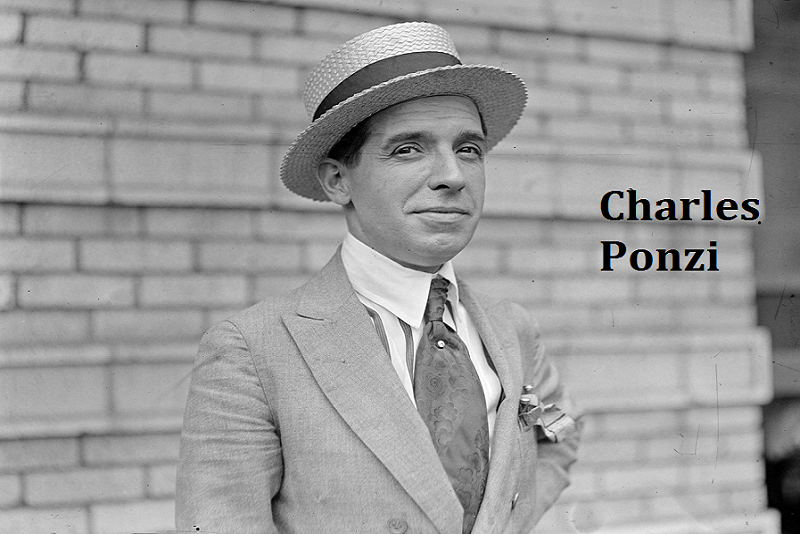BROWSE BY TOPIC
- Bad Brokers
- Compliance Concepts
- Investor Protection
- Investments - Unsuitable
- Investments - Strategies
- Investments - Private
- Features/Scandals
- Companies
- Technology/Internet
- Rules & Regulations
- Crimes
- Investments
- Bad Advisors
- Boiler Rooms
- Hirings/Transitions
- Terminations/Cost Cutting
- Regulators
- Wall Street News
- General News
- Donald Trump & Co.
- Lawsuits/Arbitrations
- Regulatory Sanctions
- Big Banks
- People
TRENDING TAGS
Stories of Interest
- Sarah ten Siethoff is New Associate Director of SEC Investment Management Rulemaking Office
- Catherine Keating Appointed CEO of BNY Mellon Wealth Management
- Credit Suisse to Pay $47Mn to Resolve DOJ Asia Probe
- SEC Chair Clayton Goes 'Hat in Hand' Before Congress on 2019 Budget Request
- SEC's Opening Remarks to the Elder Justice Coordinating Council
- Massachusetts Jury Convicts CA Attorney of Securities Fraud
- Deutsche Bank Says 3 Senior Investment Bankers to Leave Firm
- World’s Biggest Hedge Fund Reportedly ‘Bearish On Financial Assets’
- SEC Fines Constant Contact, Popular Email Marketer, for Overstating Subscriber Numbers
- SocGen Agrees to Pay $1.3 Billion to End Libya, Libor Probes
- Cryptocurrency Exchange Bitfinex Briefly Halts Trading After Cyber Attack
- SEC Names Valerie Szczepanik Senior Advisor for Digital Assets and Innovation
- SEC Modernizes Delivery of Fund Reports, Seeks Public Feedback on Improving Fund Disclosure
- NYSE Says SEC Plan to Limit Exchange Rebates Would Hurt Investors
- Deutsche Bank faces another challenge with Fed stress test
- Former JPMorgan Broker Files racial discrimination suit against company
- $3.3Mn Winning Bid for Lunch with Warren Buffett
- Julie Erhardt is SEC's New Acting Chief Risk Officer
- Chyhe Becker is SEC's New Acting Chief Economist, Acting Director of Economic and Risk Analysis Division
- Getting a Handle on Virtual Currencies - FINRA
ABOUT FINANCIALISH
We seek to provide information, insights and direction that may enable the Financial Community to effectively and efficiently operate in a regulatory risk-free environment by curating content from all over the web.
Stay Informed with the latest fanancialish news.
SUBSCRIBE FOR
NEWSLETTERS & ALERTS
Ponzi’d By My Accountant
Photo: Charles Ponzi
by Howard Haykin
For some 30 years, Carol Ann P. provided accounting services to individuals and families in Southern California. For 26 of those years, she also acted as a money manager and investment adviser to some of her accounting clients.
Carol Ann P. raised over $29 million from 25 clients by representing that she would invest their money in securities and other financial instruments that would earn returns of at least 8% - a modest and believable figure. Yet, except for one brief moment, Carol Ann P. never invested any of her clients' moneys. Instead she used over $25 million to make Ponzi distributions to investors, and spent the rest on personal expenses.
Carol Ann P. concealed her fraud by issuing fake account statements that represented where the clients’ funds were supposedly invested. The Ponzi scheme collapsed in 2017 when Pedersen ran out money and investors sued her.
MONEY IS MONEY & YOU CAN NEVER BE TOO SURE. Carol Ann P. was undoubtedly a beloved and trustworthy CPA, who seemed to be a beacon of fiscal responsibility. But when her clients entrust her with their money, they entered into "unchartered territory."
And in that scenario, they should have obtained multiple layers of verification - not just personal assurances, official-looking partnership agreements, and tidy account statements.
- For one thing, they probably didn't look into whether Carol Ann P. was duly registered to serve as an adviser – she wasn't.
- Second, there was no independent verification that funds were invested and held in a reputable brokerage or custody account - something they probably didn't do.
- Third, they're money was invested in a partnership fund, but did they see or obtain annual audited financials and Schedule K-1 tax forms (which report their share of the partnership's earnings, losses, deductions, and credits)?
It's speculation on my part, but I believe that these issues significantly helped Carol Ann P. perpetuate her Ponzi scheme for nearly 30 years.




